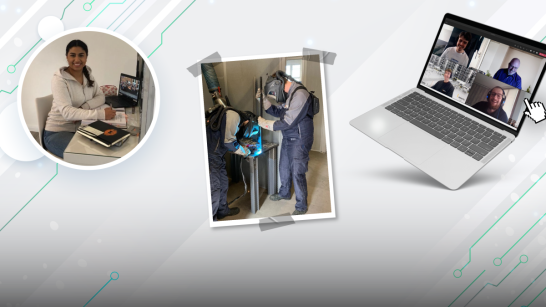What exactly is your job and what are your responsibilities?
As a Data Scientist, I am responsible for all the analytics projects at the KION Digital Campus. We work closely with our functional units to understand their requirements and determine how data can be used to solve their problems. We perform predictive as well as descriptive analyses using various statistical models. My main tasks include understanding business problems, acquiring the right data, performing exploratory data analysis, data preprocessing, creating machine learning models, and evaluating the models to measure the results.
Why did you choose this job?
It was during my master’s course in Germany, that I was first exposed to the field of data science and machine learning. As a research assistant, I got the opportunity to study Vandalism detection in Wikidata. That was where I came across statistical modeling and machine learning concepts. I have always loved working with data and I like the challenge of performing critical analyses, finding patterns in the data, creating hypotheses, and testing those.
What do you love most about your job and your employer?
At KION I get the opportunity to work on interesting projects. Since I work in an interdisciplinary team, I always get a fresh perspective on things. I look at every project as an opportunity to learn new things and KION has never disappointed me. Also, I enjoy the work culture here. I joined KION during the pandemic. Therefore, I haven’t met half of my team personally. However, we still manage to stay in touch by having virtual coffee talks, virtual breakfast meetings, and Christmas celebrations, etc. which makes work life enjoyable.
What is your typical day at work like?
We start our day with internal meetings. Then I spend some time understanding the problem and looking at the available data. I run some preliminary analyses on data and try to come up with initial models. We have regular meetings with our product owners where we discuss our findings, try to get answers to our domain-specific questions, align business use cases with the data and get feedback on ongoing tasks. We also sometimes have virtual coffee talks and team-building activities where we have more personal interactions with each other.
What advice would you give to young people who would like to start a career in your field today?
A data scientist doesn’t necessarily have to be good at writing software, but they definitely need programming skills. What is more important than rote syntax memorization is an ability to understand the problem at hand and then coming up with an intelligent solution. Last but not the least, I cannot stress the importance of developing one’s interpersonal skills. Since a data scientist has to talk to people from diverse sets of industries, communication is a key aspect that needs to be focused on. Good interpersonal skills help to understand the problem at hand and also present solutions that customers are happy with.














